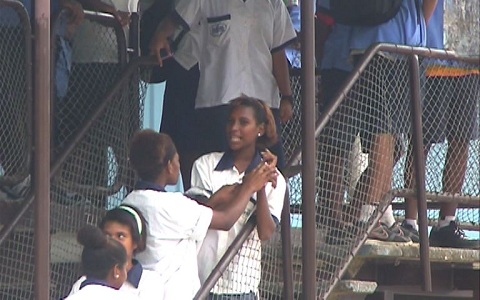An academic writing a doctorate thesis, has raised concerns about research and development into Education in Papua New Guinea.
Aaron Agunama from the University of Goroka, says the quality education will come from research done to improve quality teaching.
It comes after schools highlighted infrastructure as a lead factor of excellence.
Last month, Lae’s Busu Secondary school students questioned teachers over students failing to do well in exams, missing out on selections.
Key subjects such as Mathematics and the Science streams were amongst the lowest.
But according to Busu Secondary Principal, George Geyactulu, teachers are just part of a larger picture.
Others involved in educating children view fixing and building infrastructure as a key to boost student and teacher morale.
Lae Secondary’s Principal, Christopher Raymond says empowering teachers by building houses using school fee money paid by parents before the free education policy.
Another factor that dictates much of a schools success is the regulating body tasked to provide guidance into a school function is the Board of Governing Council.
Lae Secondary’s Board chairman, Steve Mesa says a school board also ensures that the schools get results without interfering, too much, with the functions of the administration.
Some of the Education system problems can be solved with more research being done by Papua New Guinean Academics.
With Government funding research during post-graduate studies, system can be tailored to suit the country’s needs.
At present, there isn’t enough research material produced.
But, where improved infrastructure is concerned, around 18,000 schools around the country will receive some of the K1.5 billion allocated in this year’s budget, an increase of K160 million.
Other costs include the K43 million Free Education Policy, and general school infrastructure around K23 million, that will be spread amongst the schools.
previous post


